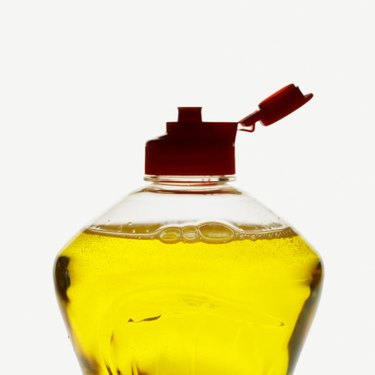
Water softeners replace calcium and magnesium -- minerals naturally found in hard water -- with sodium and potassium. The mineral exchange improves the quality of water for bathing and washing, as less soap is required and scale buildup in pipes and appliances is minimized. However, lawmakers in certain states have raised concerns about the amount of sodium used to make hard water soft. Lawmakers contend that soft water's high sodium levels can destroy good bacteria in septic tanks and diminish a drainage field's ability to absorb excess water should a tank overflow with backwash.
Texas
Video of the Day
Lawmakers in Texas passed a statewide ban on water softeners in 2001. The regulation averts water-softener discharge and reverse-osmosis backflush from entering on-site sewage facilities (OSSF), otherwise known as septic systems. The regulation was passed in an effort to prevent harm from potentially occurring to septic systems that receive treated water with high concentrations of sodium. In their announcement to water-softener associations and dealers when the ban was passed, EM Quality Water states that lawmakers essentially reacted to baseless claims that can be disputed with scientific evidence.
Video of the Day
California
Although California does not have a statewide water-softener ban in place, in 2005 lawmakers passed Assembly Bill 1366. It states that local water districts have the right to impose a ban on self-regenerating water softeners if they determine that such a ban is required in order to satisfy discharge standards set by the state. Furthermore, the bill mandates that local water districts must provide advance notice and hold public meetings if they choose to issue a ban on self-regenerating water softeners. The reason for the bill's passage is to prevent treated soft water dispensed as wastewater from increasing the sodium content of the water supply and diminishing crop yields when the water is recycled and used for irrigation.
Massachusetts
Massachusetts is one of 16 states that also include Michigan, Ohio and Washington to institute a ban on dishwashing detergent containing phosphate in 2010. Phosphate acts as a liquid water softener that encourages the formation of suds and soap used to clean dishes. It works to suspend food particles, so they do not adhere to dishes, states the H2O website. Massachusetts ban attempts to limit phosphates in wastewater that enters streams and rivers and pollutes wildlife and their habitats by forbidding products containing more than 0.5 percent phosphorous from being sold in stores.